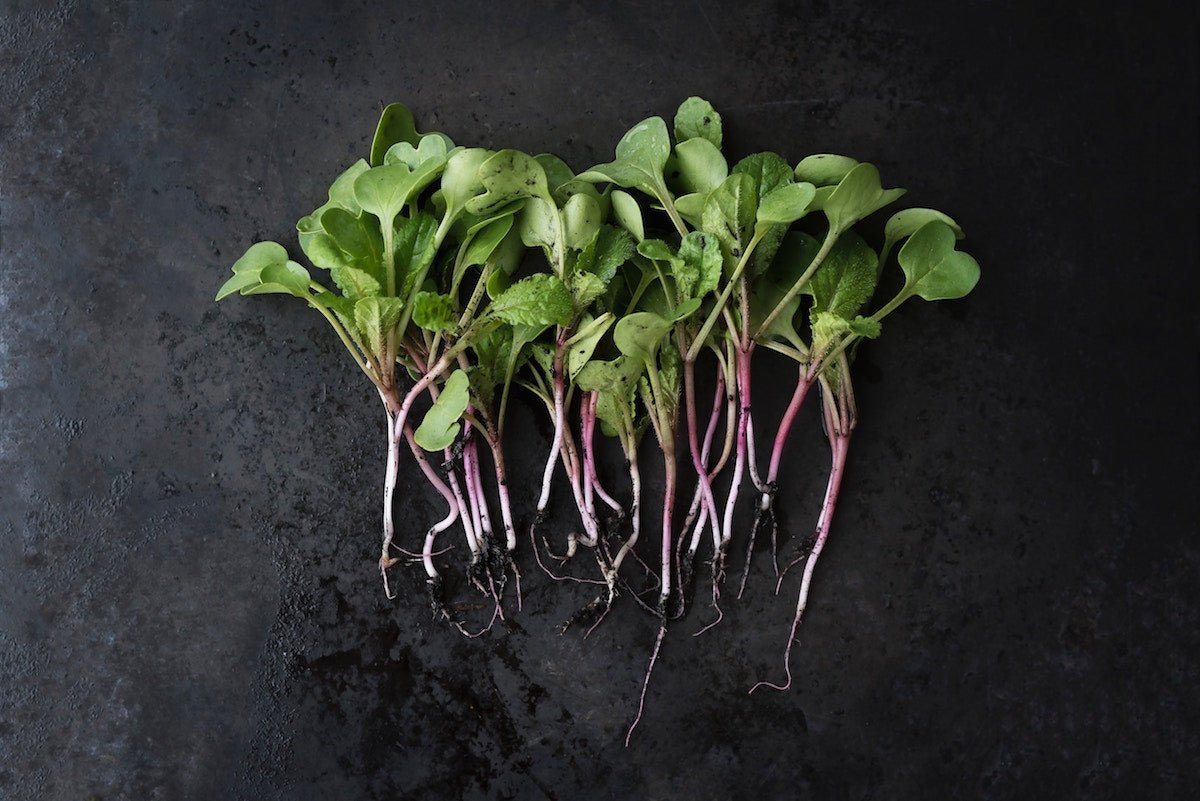

· By Joseph Welstead
Brain Food: What to Eat in February for Optimal Health.
Have you noticed? How January was all about getting in physical shape? That’s nice. But maybe it’s time we take care of our brain health just as much. Mens sana in corpore sano*, right?
Lucky for us, February abounds with brain food perfectly in season right here in the UK. And with a couple tricks up your sleeve, you’ll know exactly how to turn up your brain power. A healthy brain means improved mood, memory, focus, happiness, and could even help prevent degenerative diseases like Alzheimer's. You may think that, deeply entrenched in the cold of winter, February is a poor month for UK produce. You are wrong. We may not grow the best tomatoes at this time of year – in fact, you’d be better off buying canned tomatoes, with perfectly preserved lycopenes – but our local farmers can provide us with some lush brain food.5 brain foods to pick up in February.
Chicory. Chicory is available in supermarkets year round, but January through March is when you can get your hands on fresh, nutritious, local chicory. A lovely and colourful addition to any winter meal, 100g of chicory will provide you with over 100% of your daily vitamin A and almost half of your vitamin C requirements. In practice, this means chicory will heavily contribute to the functioning of your immune system and to your psychological function. Kohlrabi. Kohlrabi is not the prettiest of vegetables. It is hardy, and can seem like hard work. Don’t give up – include some kohlrabi in your diet this month for a good natural source of vitamin B6, which contributes to the functioning of the nervous system, to the regulation of your hormonal activity, and to proper psychological function. Chiogga beetroot. Beets are great through winter. Chiogga Beetroot will not only make sure your brain is firing on all cylinders (thanks to its generous supply of folate), it will also bring a smile to your face simply by its multicoloured beauty. The ultimate mood food? Celeriac. Celeriac is a bit like Kohlrabi. It might seem like a lot of work – but it’s actually incredibly versatile. You can mash it, roast it, pickle it or grate it raw. Whatever you decide to do with it, you’ll be lining up a great source of phosphorous and potassium – beneficial to your energy levels, to your muscle function and to the functioning of your nervous system. Rhubarb. Rhubarb crumble, anyone? A staple of British cuisine, rhubarb is a nice source of potassium, manganese and calcium. In short, rhubarb helps with your nervous system, fighting off oxidative stress, and most importantly to your brain, rhubarb contributes to effective neurotransmission. Easy on the sugar in that crumble, though.
Brain hack: give yourself a mental edge by growing your own sprouts at home
It’s easier than it sounds. All you need is a £7 jar and sieve, a bag of seeds and a sink. Really, that’s it. Sprouting seeds at home can have awesome benefits to your brain health. Here are two seeds to look out for in particular. Lentils. 100g of sprouted lentils will contribute to:- normal psychological function (thanks to the presence of thiamine)
- normal cognitive function (thanks to iron)
- cognitive development of children (thanks to iron)
- the maintenance of normal connective tissues (thanks to copper).
Bring it together: 3 brain boosting recipes
Apple, Celeriac & Walnut salad with Smoked Trout
Walnuts keep for a long time in their shell. If you can get your hands on a good source of unshelled walnuts, they'll provide a whopping amount of brain-boost vitamin B6. Combined with celeriac and high omega trout, this meal is a great mental booster.Raw Pickled Chiogga Beetroot
Pickling is easy. And contrary to most recipes, it does not require sugar. Follow these simple steps for a beautiful plateful of multicoloured brain fuel-
Wash, stem and thinly sliced your chioggia beets.
-
Place in a bowl and drizzle generously with olive oil, lemon juice, salt and pepper.
-
Let sit for 10-15 minutes.
- Enjoy!
Rhubarb & Date Chutney
Want to enjoy Rhubarb without the sugar of a crumble? Try this chutney recipe from BBC Good Food. Eat it with a generous serving of aged cheddar to help the maintenance of red blood cells.Still got concerns about your brain health?
- Get some blood tests done – it’s the most direct way of spotting any nutritional deficiencies.
- Try some brain boosting supplements, like our Mind & Body Creatine expertly formulated for brain health with folate, B12 and biotin.